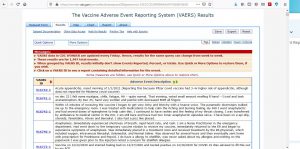From the ICIJ
the International Consortium of Investigative Journalists
Imagine if, right now – as the coronavirus pandemic sweeps across the world – governments had access to the $800 billion in lost tax revenue that’s currently sitting in offshore tax havens?
Our healthcare systems could be stronger. Our protective gear stockpiles could be bigger, and our emergency funds could be much larger – if only everyone had paid their fair share.
It gets to the heart of what we do at ICIJ: we investigate global inequities – and expose those who take advantage of them. It takes a lot of time, and human resources, because these are complex stories that cross borders.
Our award-winning Panama Papers investigation was first published four years ago this week. To mark the anniversary, we’ve taken a deep dive into tax havens and offshore finance – in an effort to keep talking about the systemic inequality they perpetuate.
As a nonprofit newsroom, we had also planned to fundraise around the anniversary – asking readers like you to help us keep shining a light on these global inequities. This time last year, we raised nearly $19,000 (thank you!). Our investigations, like Panama Papers, Luanda leaks, Implant Files and more cannot happen without this support.
We have a few (30!) of our 2019 Panama Papers ‘I pay my taxes’ tote bags left. While we’re not going to be in your inbox every week reminding you, we are offering you the opportunity to keep supporting our investigations.
If you have the capacity, please donate $60 or more using this link.
In return, we promise to keep shining a light on those taking advantage of loopholes and crises like these. Now here are our latest stories!
TAX HAVENS EXPLAINED
Four years after we published the Panama Papers, we remain committed to reporting on offshore finance and those who exploit it. Tax havens, and industry professionals, make it possible for the wealthy and well-connected to avoid paying trillions of dollars in taxes. We hope this Q&A explains how offshore finance works, and why it matters.
“Tax havens are at the heart of the financial and budgetary crisis,” economist Gabriel Zucman told us. He and other tax experts say now is the time for a more forceful tax response to the coronavirus – as governments stretch their resources to meet demand. “Now is the time to push hard for tax justice,” Tax Justice Network’s Nicholas Shaxson said. The economists we spoke to have a few suggestions for regulators, as they face the pandemic.
‘ABUSIVE’ SEIZURE
Isabel dos Santos says the seizure of her $442m stake in a Portuguese telecommunications company is “excessive” and “clearly abusive.” Portugal’s latest move comes as Angola seeks to recoup more than $1 billion worth of assets that they claim she, her husband and associates siphoned from the nation.
RIGHTS REPRESSED
Some tactics being implemented by governments to address the coronavirus are turning into tools to repress basic human rights. Reporters are being affected in a number of ways around the world. For example, police stormed the house of a reporter in Peru, a journalist was arrested in Serbia, and reporters were attacked in Uganda. Other governments have cut off access to information, passed new repressive laws and asked reporters to cover “positive” stories.
KILLER SENTENCED
The alleged contract killing of investigative reporter Jan Kuiack and his fiancee Martina Kušnírová triggered mass protests, a political crisis and brought down Slovakia’s government. Yesterday, a former soldier, who pleaded guilty to the murders, was sentenced to 23 years in prison. Three other people, including property developer Marián Kočner – who Kuiack had reported on, are standing trial on charges of paying for the murder.
Amy Wilson-Chapman
ICIJ’s community engagement editor
P.S. Can you support our investigations? Together, we can hold the powerful to account and shine a light on the global inequities exposed by the coronavirus pandemic. Join ICIJ Insiders today!






